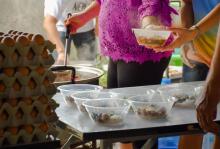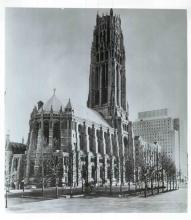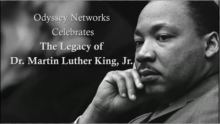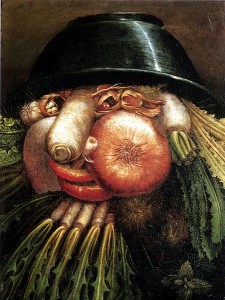feast

NOVEMBER IS THE MONTH of remembrance and thanksgiving. It begins with the Feasts of All Saints (Nov. 1) and All Souls (Nov. 2), when Christians honor holy women and men. What does it mean to be holy? Too often, we think of holiness as an impossible task—we equate it with a scrupulous perfectionism none of us can attain. That is an easy, and spiritually immature, excuse not to ponder what holiness might mean for us. To be holy is to be one with God. As people of faith, we are all called to holiness. It is something that we grow into as we grow in our relationship with God, others, and ourselves.
The women and men whose names we sing in the Litany of the Saints (as well as the names of our loved ones who we might add to that litany) were not angels. They were humans, like you and me. However, we remember them because their lives witnessed to God’s loving presence in our midst. We, too, are called to witness to this grace. The readings for this month remind us that becoming holy will demand much of us. It requires that we “love the Lord our God with all our heart, and with all our soul, and with all our might” (Deuteronomy 6:5) and that we “love our neighbor as we love ourselves” (Mark 12:31). They also promise us that God “will show [us] the path of life” (Psalm 16:11) and “fullness of joy” as we tend to God’s “kin-dom.”
[ November 4 ]
Beware Shiny Gods
Deuteronomy 6:1-9; Psalm 119:1-8; Hebrews 9:11-14; Mark 12:28-34
OUR READINGS begin with the words of the Jewish Shema: “Hear, O Israel: The Lord is our God, the Lord is one. You shall love the Lord your God with all your heart, and with all your soul, and with all your might” (Deuteronomy 6:4-5). Immediately, the scripture reminds us that God is to be the center of our lives. But how do we make God the center of our lives? In a world where distractions abound—where there is always some new and shiny god being launched for the low, low price of $29.99 per month—how do we love God with all our hearts, souls, and might? While the shiny false gods might be easy to identify and avoid, how do we genuinely attend to the variety of “competing goods” (as my colleague the ethicist calls them) in our lives? How do we balance time for prayer with time for family, friends, ministry, work, and self-care?
In Mark’s gospel, Jesus adds on to the Shema, stating that the second great commandment is to “love your neighbor as yourself” (Mark 12:31). Perhaps this is a clue as to how we can make God the center of our lives while also attending to our competing goods: Namely, we can see that God is always already at the center of those goods. After all, God is what makes them good! This does not mean that we do not commit to the discipline of prayer, but it does mean that the overall goal of prayer is to make us aware of the ever-present God in our midst. Imagine: What would that Monday morning board meeting look like if we really believed that God was present there? How about those 3 a.m. newborn feedings and endless diaper changes? Or that friend going through a divorce who just needs someone to listen? What if we really saw each of those moments, each of those people, as encounters with the living God? Perhaps then we might be able to say, “I am loving the Lord my God with all my heart, all my soul, and all my might. And I am loving my neighbor as myself.”

In Egypt, religious identity is stated on each resident's identification card. Egyptian names often reflect religious affiliation, and many Christians have Coptic crosses tattooed on their wrists. These cultural norms were practice before the increase in violence, but the introduction of rigorous screenings, checkpoints, and religious “profiling” has made these differences more acute.

I love Thanksgiving.
I love the food, the fellowship, the friends and family, the football, and did I mention that I love the food. Unashamedly it might very well be my favorite holiday. Yet, despite all my warm feelings about Thanksgiving, I am not blind to its historical shortcomings.
As Jane Kamensky says, “…holidays say much less about who we really were in some specific Then, than about who we want to be in an ever changing Now.” I think she’s right about this. In so many cases, our national celebrations and observances are mere expressions of our collective aspirations and not our actuality. One clear example of this is the history and practice of the Thanksgiving holiday.
As it goes, every year people throughout this nation gather for a commemorative feast of sorts where we give praises to God for the individual and collective blessings bestowed upon us. This tradition goes back to the 17th century when the New England colonists, also known as pilgrims, celebrated their first harvest in the New World.
On the surface, this seems harmless enough but a closer reading of history tells a more dubious story.

IT WAS LIKE the end of the movie Lincoln. In an instant, one whole side of the House of Representatives turned, looked up at the five core fasters from the Fast for Families and erupted in overwhelmingly spirited applause. The applause reverberated throughout the chamber for what seemed like an eternity, though it was really only minutes. Ah, but what grand minutes. I wept. My body, standing there in the gallery, could not contain it.
The Fast for Families: A Call for Immigration Reform and Citizenship was launched on Nov. 12 with core fasters abstaining from all food and drinking only water. Based in a tent on the National Mall, only a few hundred yards from the Capitol building, the fast was sponsored by nearly 40 church and labor organizations and garnered support from more than 4,000 solidarity fasters across the U.S. and around the world. Our goal: To move the hearts and compassion of members of Congress to pass immigration reform with a path to citizenship.
In the Capitol building on Dec. 2, during the hour before the startling ovation, Eliseo Medina (the leader of the fast, which had reached the end of its 21st day on that Monday evening), D.J. Yoon (executive director of NAKASEC, a Korean-American advocacy agency), Cristian Avila (from Mi Familia Vota), and I received House member after member who’d come to visit us in the gallery to say “thank you for your sacrifice.” All the faces and names you usually see flashed across the screen commenting on the events of the day on cable television shows—they came to us, standing in the flesh, shaking our hands, grateful and concerned for our health.

THURSDAY NIGHT is baking night at Panadería El Latino on 11th Street. Early Friday morning, the bakers pull their weekend supply of pan dulce from the ovens. Racks and racks of conchas, cuernos, and galletas—in eye-popping yellows and pinks—are set out to cool. The entire street is redolent with yeast, cinnamon, and sugar.
From the outside this bakery looks like any another boarded-up building. “The only indication this isn’t a crack den,” one local points out, “is the overwhelmingly delicious smell of baked goods.” El Latino distributes to corner bodegas across the metro D.C. area. But, if you brave the exterior, you can get three sweet rolls for a buck. Bread of heaven!
Extending our tables to feed the multitudes is a practice Jesus asks us to imitate (Matthew 14:16). When Jesus hosted that feast for “more than 5,000” with “only five loaves and two fish,” it was called a miracle. But the mystery wasn’t in magic math. Rather this is a tale of two parties. In Matthew 14:13-21, the dilemma was that there was too little food and too many people. But in the preceding verses, there was too much food and too little humanity.
Matthew 14:1-12 tells the story of Herod’s birthday party. Here, only the upper 1 percent, the elite and powerful, are gathered in a setting overflowing with the rarest wines, mountains of meat, and the finest breads. But Herodias’ daughter demands a different dish. The main course is served to her on a platter: It is the head of John the Baptist.

On a Greenwich Village street where male prostitutes seeking customers shout out their dimensions, I walked past an open but empty church on my way to the subway.
In times past, flocking to church on Sunday morning was a beloved family routine, even here in bad old Gotham. Now they’re trying nontraditional worship on Sunday evenings.
It’s a struggle, both here and elsewhere in the 21st-century Christian world. Buildings with “beautiful stones and gifts dedicated to God,” as Luke described the temple in ancient Jerusalem, are falling into disuse and disrepair — not because Caesar attacked and took revenge on an alien religion, but because the world changed and gathering weekly in “Gothic piles” no longer seems necessary for finding faith.

The clouds, pregnant with rain. No light
but an inkling of light. If Advent is a time
of waiting, of joyful anticipation, why are we
so often troubled? Consider Mary, the unknown
future she holds. Or Amy, staying the day
with D—, expecting in January, alone and now
spotting with unexpected blood, baby not yet
ready. What was our life before children? Years
of memories now include the children—as if they
already were born, only we could not see them.

The upcoming March on Washington has been on my mind as I reflect upon this week’s Gospel reading from Luke about a banquet. I personally love banquets. You get to adorn yourself with the finest trappings, dance the night away, and if the food is good, that is an added plus! But what I find most frustrating? Knowing a banquet is occurring, and I have not been invited. “Did I do something wrong? Do I not meet a certain standard? Who did get invited?” My wondering is filled with emotion.
What if America was a banquet, and at this banquet the servings were fair wages, just trials, civil rights and liberties, but offered by invitation only? According to those who “March(ed) on Washington,” this was exactly the case. Blacks deserved the same fair treatment as whites, and they were protesting to bring about the necessary changes. Perhaps if everyone took heed of Jesus’ instructions on banquet etiquette, things would be different and better.
On my knees I beg forgiveness for my greed—
and for starving myself.
By your eyes I see you love this priest,
follow his lyrical fingers in praise of
a small white host he points here,
there.
(+Video may contain coarse language+)
Indie music darling, Jeff Mangum, who rarely plays in public, surprised #OccupyWallStreet protesters in New York City earlier this week with an impromptu concert. A New Jersey singer-songwriter pens two songs for revolutions. And an order of Catholic nuns offer free mp3 downloads of a protest song inspired by the life of St. Francis of Assisi.
This evening I will lead a Passover Seder observance in my Christian community. We've done it for years and always find it inspiring to reflect on God's liberation from slavery. And it's the occasion for a delicious potluck feast.
This week I saw an article written last spring on Jews' concerns over Christians celebrating Passover. It seems that more Christian churches are using "Christianized" versions of the seder, reinterpreting the meal's symbols to reflect Christian beliefs. Said one rabbi, "They take our symbols, our holiday, our ritual and start investing them in Christian meaning."
On December 13, a Tacoma-based jury declared five Disarm Trident Now Plowshares activists "guilty" of trespass, felony damage to federal property, felony injury to property, and felony conspiracy to damage property.
I have to admit, I wasn't expecting much when I first took my seat in the theater to preview Cloudy with a Chance of Meatballs, a 3-D animated comedy based on the popular children's book.
